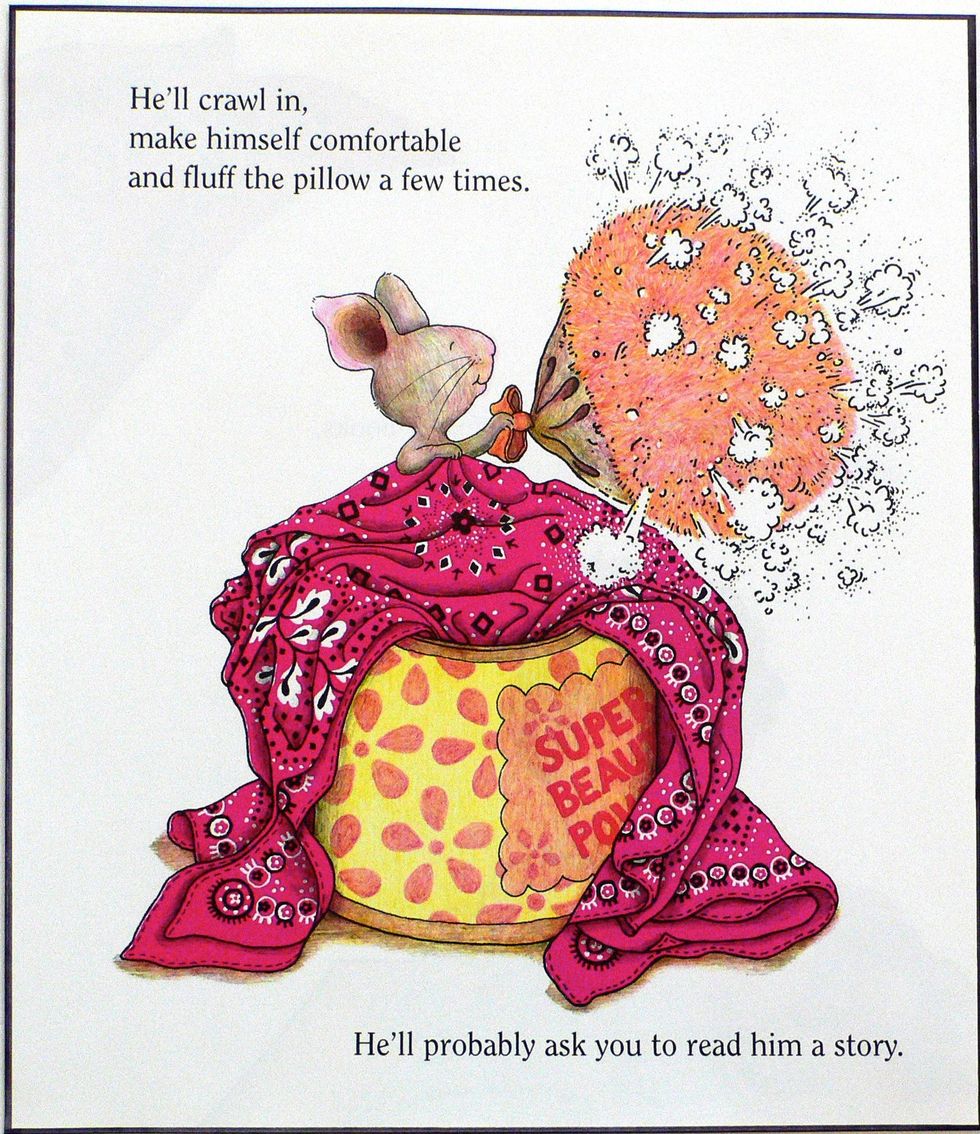When people find out I’ve traveled a bit, they immediately ask how I did it. Generally, they want to get to how I saved for my trip. I love saving money and budgeting because I find it thrilling; I get creative.
Although I love it, it’s hard work, and it will wear you out. It’s easy to get lost in all the advice out there about what you can do for extra cash and making the perfect budget for your trip and so much information you feel like you might have a meltdown. (Okay, yes, maybe I’ve had one of those before.)
Anyway, I thought I’d share some of what I do. It's random ideas, and not all of it will work for everyone, but maybe something will ring true for you!
1. Drink Before the Bar. Drinks are expensive! Why spend seven bucks on one drink when you can get a bottle of cheap wine for the same price? And if the wine is really bad, just mix it with some soda and you're set! (You think I'm kidding but I do this often.) And when you do head to the bar, give yourself a limit of how many drinks you're going to buy. It's too easy to say, "I'm not gonna spend too much tonight," but then get carried away. It's much better if you go in with a clear number in mind.
2. Get a Consistent Job. Maybe this seems obvious to you but many people tell me they want to save up to travel but then never work. Maybe they'll get a seasonal job here and there or work one or two days a week but it's not nearly enough. I can't tell you how often people say, "I don't have time!" As if I do have time even though I go to school full-time, work full-time, and yes I still manage to go out with our friends and get good grades.
When I tell some people this they mention they need an internship. That's fine, too. Last year I had an internship, went to school full-time, and worked twenty hours a week. Who told you college was relaxing? Maybe you just think I'm crazy to try to squeeze in everything I do but I would argue I'm just productive because I'm driven by my goal to sail away. You can work, you just have to want it enough. You will be able to adjust your schedule because you will start prioritizing. And if you still say that you absolutely cannot get a job, well, then maybe travel isn't for you because travel is about sacrifice.
3. Free Stuff. Free activities are abundant. There's free museums, free concerts, free parks, free movies on campus. There's so much free stuff. Depending on where you're located, most cities and towns have free stuff going on. Just look up free stuff to do wherever you are, and I'm sure you'll find some things.
Also, if you're in college, your college probably provides you with all kinds of free things. There's free classes at the gym, there's always activities on campus, and, my personal favorite, there's often free resources that will help succeed, like tutoring or a writing center. Taking advantage of free activities can be fun and help you save.
4. Odd Jobs. Babysitting is key. Girls, and guys you should really get on this too, babysitting is a great way to make extra money the weekends. Or, maybe mowing lawns, or weeding gardens, or shoveling snow, or selling your plasma, or whatever it may be.
Often times, what I'll do is say that money I make from my consistent job goes to my big stuff that I have to buy or save for and my money I make babysitting on the weekends can be for spending money. It's a good way to keep saving what you make and still having a little money to play with.
5. Organize Your Life. A good way to start saving is by getting organized. Maybe these seem like two separate things but they're not. When you start organizing yourself, you'll start being able to save. Having a planner lets you see where you have free time and maybe what hours you could get a job. Having a monthly calendar shows you where you can take a trip. Figuring out your goals will help you to achieve those goals.
I go to an Academic Coach for free through my university and that has been working wonders for me. Being organized will help you to stay on top of all areas in your life which will help you save.
6. Budget. This kind of branches off the last point but it is still important enough that it needs it's own number. When budgeting, there should be three separate budgets.
Budget one should be a short-term budget. It should be everything that needs to be purchased in the immediate here and now and how much money you currently have. Update this weekly.
Budget two should be a long-term budget. I often say this budget should go until you leave for your next big trip. That's a budget that estimates how much money you can make by that point (always estimate lower for this number) and what you'll need to buy and spend by that point (always estimate higher for this number). Try to break these numbers down as much as possible such as each item you may need and how much money you're estimating a week earning.
The last budget should be your travel budget. This budget is purely the amount you plan on spending on the road. This has nothing to do with what you need to purchase for your travels before you leave, those should be in your other budgets. A good way to start planning this budget is by looking at your long-term budget and finding the amount of money left-over after everything you need to spend by then is subtracted from the amount you plan on earning, sometimes I subtract an extra thousand dollars or so as well because you never know what might come up. If this amount is too small then you may want to start cutting unnecessary things from the list of things you need to buy and may be look at some odd jobs and other ways to earn money as well. Once you have an amount you have to spend then start looking at flights to different places, compare costs of spending in this places, and at other travelers who have posted their budgets for those areas online.
7. Make Sacrifices. For awhile I lived at home, it wasn't always the best but I saved lots of money. I use an old phone for many reasons, but one is that it's cheap. I have given up fun nights out to babysit before. I use three items of make up. I have grown to love living simply, but at the same time, a lot of has to do with making sacrifices for saving. You may have to start eating in instead of eating out, but you will be saving so much money in the long run.
At first, sacrificing will be hard but the more money you accumulate for travels the easier it becomes, and you may even start enjoying it.
8. Splurges. We all have those things we splurge on. The problem is that more and more often those splurges have went from splurges to things you just do. I pay for Spotify Premium. I love music, and I am willing to pay five dollars a month for the services. But it's a splurge, and I am aware of the fact that it costs me sixty dollars a year.
It's okay to have items to splurge on, but take note of what things you're spending money on that you don't need to be spending money on and start cutting the ones that aren't top priorities. So, for instance, I splurge on my Spotify, but I don't go out to eat. Splurges should be that and not regular routine.
9. Reusable Water Bottle. This may seem silly, but it has saved me so much money. I bring my water bottle everywhere. I drink a full bottle when I get up and carry it throughout the day.
People so often buy a bottle of water in desperation, but every time they do that they're throwing their money away. Also, people think they're hungry when they're really just thirsty; this saves you money on food, eating out and at your house.
10. Penny-Pinch. There are so many creative ways to penny-pinch whether it's cutting coupons, using Groupon, using student specials (Spotify, Amazon, tickets, etc.), fuel points, or even collecting coins in a mason jar. I have saved so much stray money this way. It's like, why wouldn't you do this?
11. DIY and Second-Hand. I needed a new bed frame, and I wanted a mattress topper, but both we're expensive. I decided one or the other. So, I bought the mattress topper, but I still needed a bed frame. I asked my dad if we could build one. We used old boards and whipped something up, and I painted it gold. I now have a bed frame and my mattress topper is on the way.
I also needed new shoes to go out in, but I know there will be salt everywhere, and I'll be in bars and parties, they'll be ruined. I stopped at the second-hand store and found a very cute pair. Not everything in life has to be delivered off Amazon or come from the mall to be good, open your mind to all sorts of possibilities.
12. Make Comparisons. A few weeks ago I looked at the jacket I really wanted, it was three hundred and fifty dollars. Being a traveler, I do what I always do and looked at flights at the same time. I found a flight to where a friend lives in New Mexico for the same price. New jacket or visit a friend in New Mexico?
I think you can guess what won.
Starting to make those sorts of comparisons will help you put your spending in context a little more and may help you save.
Three drinks at the bar? That might cost you a night at a hostel.
A new pair of shoes? You can kiss that train ticket goodbye.
A nice meal out? That was at least three meals of authentic street food.
Start looking at your spending this way and it doesn't just seem like saving anymore, it feels like you're taking away from future, cooler experiences.
13. Set The Money To The Side. I keep some money in my wallet, and the rest is either hidden at home or in my savings account. It's hard to spend money when you don't have it available to you. T
he money in my wallet is my spending money. I can see what I'm able to purchase and when I'm out, too bad. It keeps me from spending without thinking. I look at that cash in there and I see that I don't have much to spend and I become a little tighter with my spending.
So, a lot of this seems obvious but yet it gets put off. Start doing some, or all, of these things on the list, and maybe you'll find yourself accumulating more money than you thought you could. Saving money isn't impossible, it's about approaching saving with drive. All of the little things add up. You can travel.
So get started, and go!



















